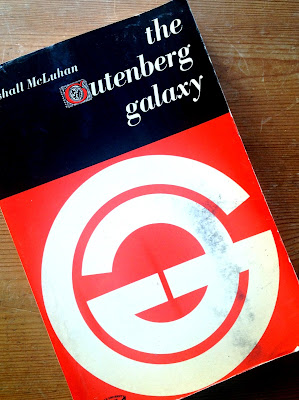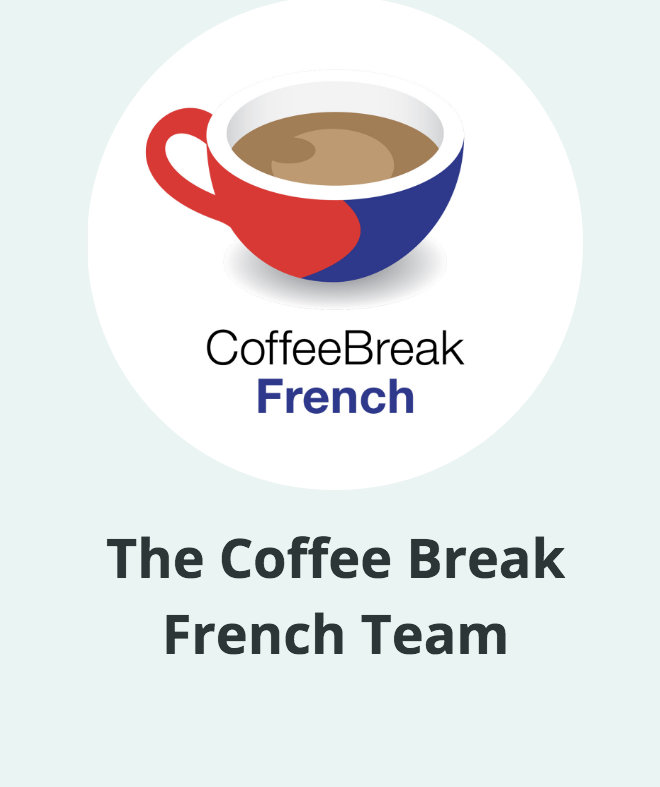
Reading this as it is name dropped so often. Stripping it bare and re-interpretting it for 2013.
‘I don’t know what I mean until I have heard myself say it', said Irish author and satirist Jonathan Swift
Conversation plays a crucial element of socialised learning.
Courtesy of a Google Hangout we can record and share such interactions such as in this conversation on and around ‘personal knowledge management’.
Here we can both see and hear why the spoken word is so important. Trying to understand the historical nature of this, how and when the written word, or other symbols began to impinge on the spoken word requires investigating the earliest forms of the written word and trying to extrapolate the evidence of this important oral tradition, the impact it had on society and the transition that occurred, after all, it is this transition that fascinates us today as we embrace the Internet.
Humans have been around for between 100,000 and 200,000 years.
(Encyclopedia Britannica). There are pigments and cave painting have been found that are 350,000 years old. (Barham 2013), while here are cave paintings as old as 40,000 years (New Scientist).
Stone Age man's first forays into art were taking place at the same time as the development of more efficient hunting equipment, including tools that combined both wooden handles and stone implements. (BBC, 2012).
Art and technology therefore go hand in hand - implying that the new tools of the Internet will spawn flourishing new wave of creation, which I believe to be the case. This era will be as remarkable for the development of the Web into every aspect of our lives as it will be for a epoch identifying renaissance - a new way of seeing things.
We’ve been seeking ways to communicate beyond the transience of the spoken word for millennia.
McLuhan takes us to the spoken word memorised in song and poetry (Lord, 1960 p. 3) while a contemporary writer, Viktor Mayer-Schonbeger, (2009. p. 25) also talks about how rhyme and meter facilitated remembering. McLuhan draws on 1950s scholarship on Shakespeare and asks us to understand that Lear tells us of shifting political views in the Tudor era as a consequence of a burgeoning mechanical age and the growth of print publishing. (Cruttwell, 1955)
McLuhan suggests that the left-wing Machiavellianism in Lear who submits to 'a darker purpose' to subdivide of his kingdom is indicative of how society say itself developing at a time of change in Tudor times.
Was Shakespeare clairvoyant?
Did audiences hang on his words as other generations harken the thoughts of H G Wells, Aldouz Huxley, George Orwell and Karl Popper, perhaps as we do with the likes Alan de Bouton and Malcolm Gladwell?
'The Word as spoken or sung, together with a visual image of the speaker or singer, has meanwhile been regaining its hold through electrical engineering'. xii. Wrote Prof. Harry Levin to the preface of The Singer of Tales.
Was a revolution caused by the development of and use of the phonetic alphabet?
Or from the use of barter to the use of money? Was the 'technological revolution' of which McLuhan speaks quoting Peter Drucker, the product of a change in society or did society change because of the 'technological revolution'? (Drucker, 1961) Was it ever a revolution?
We need to be careful in our choice of words - a development in the way cave paintings are done may be called a ‘revolution’ but something that took thousands of years to come about is hardly that.
Similarly periods in modern history are rarely so revolutionary when we stand back and plot the diffusion of an innovation (Rogers, 2005) which Rogers defines as “an idea, practice, or object that is perceived as new by an individual or other unit of adoption. (Rogers, 2005. p. 12). To my thinking, ‘diffusion’ appears to be a better way to consider what has been occurring over the last few decades in relation to ‘technology enhanced communications’, the Internet and the World Wide Web. But to my ears ‘diffusion’ sounds like ‘transfusion’ or ‘infusion’ - something that melts into the fabric of our existence.
If we think of society as a complex tapestry of interwoven systems then the Web is a phenomenon that has been absorbed into what already exists - this sounds like an evolving process rather than any revolution. In context of course, this is a ‘revolution’ that is only apparent as such by those who have lived through the change; just as baby boomers grew up with television and may not relate to the perspective that McLuhan gives it and those born in the last decade or so take mobile phones and the Internet as part of their reality with no sense of what came before.
Clay tablets, papyri and the printing press evolved. We are often surprised at just how long the transition took.
To use socio-political terms that evoke conflict and battle is a mistake. Neither the printing press, nor radio, nor television, nor the Internet have been ‘revolutions’ with events to spark them akin to the storming of the Bastille in 1789 or the February Revolution in Russia in 1917 - they have been evolutionary. Are we living in 'two forms of contrasted forms of society and experience' as Marshall McLuhan suggested occurred in the Elizabethan Age between the typographical and the mechanical ages? Then occurred between in the 1960s between the industrial and electrical ages? 'Rendering individualism obsolete'. (McLuhan 1962. p. 1)
Individualism requires definition. Did it come with the universal adult suffrage?
Was it bestowed on people, or is it a personality trait? Are we not all at some point alone and individual, as well as part of a family, community or wider culture and society? We are surely both a part and part of humanity at the same time? Edward Hall (1959), tells us that ‘all man–made material things can be treated asextensions of what man once did with his body or some specialized part of his body.
The Internet can therefore become and is already an extension of our minds.
A diarist since 1975 I have blogged since 1999 and have put portions of the handwritten diary online too - tagging it so that it can be searched by theme and incident, often charting my progress through subjects as diverse as English Literature, British History, Geography, Anthropology and Remote Sensing from Space, Sports Coaching (swimming, water-polo and sailing). This aide memoire has a new level of sophistication when I can refer to and even read text books I had to use in my teens. It is an extension of my mind as the moments I write about are from my personal experience - there is already a record in my mind. What is the Internet doing to society?
What role has it played in the ‘Arab Spring’?
McLuhan considered the work of Karl Popper on the detribalization of Greece in the ancient world). Was an oral tradition manifesting itself in the written word the cause of conflict between Athens and Sparta? McLuhan talks of ‘the Open Society’ in the era of television the way we do with the Internet. We talked about the ‘Global Village’ in the 1980s and 1990s so what do we have now? Karl Popper developed an idea that from closed societies (1965) through speech, drum and ear we came to our open societies functioning by way of abstract relations such as exchange or co–operation. – to the entire human family into a single global tribe.
The Global kitchen counter (where I work, on my feet, all day), or the global ‘desk’ if we are sharing from a workspace …
or even the ‘global pocket’ when I think of how an Open University Business School MBA student described doing an MBA using an iPad and a smartphone as a ‘university in my pocket’. You join a webinar or Google Hangout and find yourself in another person’s kitchen, study or even their bed. (Enjoying one such hangout with a group of postgraduate students of the Open University’s Masters in Open and Distance Education - MAODE - we agreed for one session to treat it as a pyjama party. Odd, but representative of the age we live in - fellow students were joining from the UK, Germany, Thailand and the United Arab Emirates). I have been part of such a group with people in New Zealand and California - with people half asleep because it is either very late at night, or very early in the morning.
McLuhan (1965. p. 7) concludes that the 'open society' was affected by phonetic literacy ...
... and is now threatened with eradication by electric media. Writing fifty years ago is it not time we re-appraised McLuhan’s work and put it in context. We need to take his thesis of its pedestal. Whilst it drew attention at the time it is wrong to suggest that what he had to say in relation to the mass media (radio and TV) if even correct then, others insight in the era of the Internet. This process of creating an open society has a far broader brief and with a far finer grain today - , the TV of the sitting room viewed by a family, is now a smart device in your pocket that goes with you to the lavatory, to bed, as you commute between work and in coffee and lunch breaks.
It will soon be wearable, not only always on, but always attached as goggles, glasses, ear-piece, strap or badge. If 'technology extended senses' McLuhan, 1965. p.8 then the technology we hold, pocket and wear today, are a prosthesis to our senses and to the manner in which the product of these senses is stored, labelled, interpreted, shared, re-lived, and reflected upon.
If Mercators maps and cartography altered 16th century mentality what do Google Maps and Street View do for ours?
Did the world of sound gives way to the world of vision? (McLuhan, 1965 p.19). What could we learn from anthropologists who looked at non–literate natives with literate natives, the non–literate man with the Western man. Synchronous conversation online is bringing us back to the power and value of the spoken word - even if it can be recorded, visualised with video and transcripted to form text. The power, nuance and understanding from an interchange is clear.
REFERENCE
Barham, L (2013) From Hand to Handle: The First Industrial Revolution
Carpenter, E and H M McLuhan (19xx) 'Explorations in communications'. Acoustic Space
Cruttwell, P (1955) The Shakespearean Moment (New York; Columbia) New York. Random House.
Hall, E.T. (1959) The Silent Langauge Lord, A.A. (1960) The Singer of the Tales (Cambridge. M.A. Harvard University Press)
Drucker, Peter F. "The technological revolution: notes on the relationship of technology, science, and culture." Technology and Culture 2.4 (1961): 342-351.
Mayer-Schönberger, V (2009) Delete: The Virtue of Forgetting in the Digital Age
Popper, K. (1945) The Open Society and Its Enemies, Volume One. Routledge (1945, reprint 2006)
Rogers, E.E. (1962) The Diffusion of Innovations.





